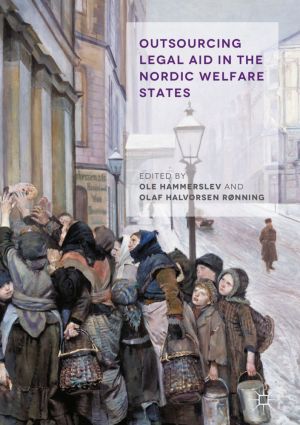
Despite the emphasis of the European Regional Policy on territorial cohesion, regional disparities have been increasing within Europe in the past years. The metropolitan areas in almost all countries are considerably growing while regions outside of agglomerations are stagnating or even declining. Against this background this book aims to provide a...

This edited collection provides a comprehensive analysis of the differences and similarities between civil legal aid schemes in the Nordic countries whilst outlining recent legal aid transformations in their respective welfare states. Based on in-depth studies of Norway, Sweden, Finland, Denmark, and Iceland, the authors compare these cases with le...

This edited collection focuses on theories, language and migration in relation to multiculturalism in Japan and the Asia-Pacific. Each chapter aims to provide alternative understandings to current conflicts that have arisen due to immigration and policies related to education, politics, language, work, citizenship and identity....

This book is a methodical treatise on narration in different types of media. A theoretical rather than a historical study, Transmedial Narration is relevant for an understanding of narration in all times, including our own. By reconstructing the theoretical framework of transmedial narration, this book enables the inclusion of all kinds of communic...

This book asks just how climate-smart our food really is. It follows an average day's worth of food and drink to see where it comes from, how far it travels, and the carbon price we all pay for it. From our breakfast tea and toast, through breaktime chocolate bar, to take-away supper, Dave Reay explores the weather extremes the world's fa...

Those convicted of homicide were hanged on the public gallows before being dissected under the Murder Act in Georgian England. Yet, from 1752, whether criminals actually died on the hanging tree or in the dissection room remained a medical mystery in early modern society. Dissecting the Criminal Corpse takes issue with the historical cliché of cor...

Interest in social innovation continues to rise, from governments setting up social innovation 'labs' to large corporations developing social innovation strategies. Yet theory lags behind practice, and this hampers our ability to understand social innovation and make the most of its potential. This collection brings together work by leadi...

This book discusses individual, collective, and institutional responsibilities with regard to vaccination from the perspective of philosophy and public health ethics. It addresses the issue of what it means for a collective to be morally responsible for the realisation of herd immunity and what the implications of collective responsibility are for ...
